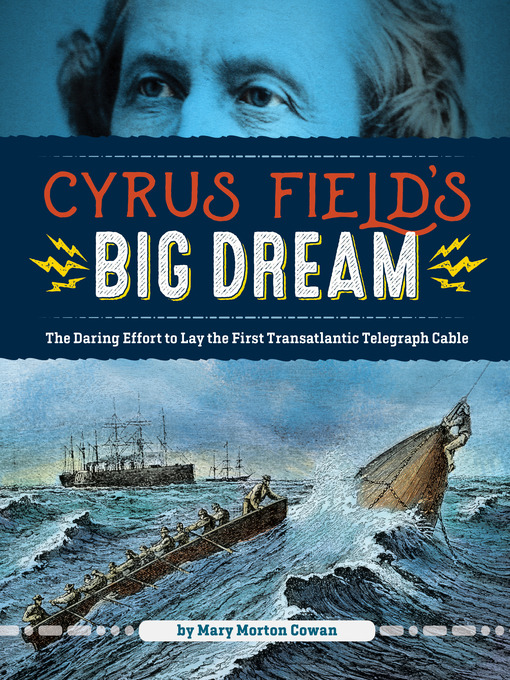A NSTA Best STEM Book
Explore the extraordinary achievement of Cyrus Field and one of the greatest engineering feats of the 19th century: laying a transatlantic telegraph cable to create instant communication between two continents.
Cyrus Field had a big dream to connect North America and the United Kingdom with a telegraph line, which would enable instant communication. In the mid-1800s, no one knew if it was possible. That didn't dissuade Cyrus, who set out to learn about undersea cables and built a network of influential people to raise money and create interest in his project. Cyrus experienced numerous setbacks: many years of delays and failed attempts, millions of dollars lost, suspected sabotage, technological problems, and more. But Cyrus did not give up and forged ahead, ultimately realizing his dream in the summer of 1866. Mary Morton Cowan brilliantly captures Cyrus's life and his steadfast determination to achieve his dream.



